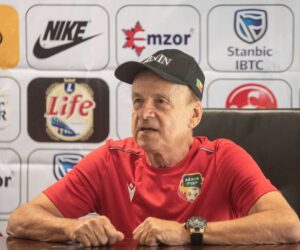2
The first ever Nigeria Cape Town Convention (CTC) Moot Court Competition has been widely praised by the Aviation Working Group (AWG), the Federal Ministry of Aviation and Aerospace Development, and the Federal High Court in Abuja.
Officials at the event’s grand finale described the competition as highly enriching and remarkable.
The event came at a significant time, as Nigeria’s global aviation compliance rating under the Cape Town Convention has surged to 75.5%, indicating a major leap in meeting international aviation financing standards.
Designed to introduce Nigerian law students and the legal system to the international treaty governing aviation business, the competition was organized by the Cape Town Convention Academic Project (CTCAP) in collaboration with UNIDROIT and the University of Cambridge.
Its purpose is to familiarize participants with the treaty’s complexities through simulated court proceedings based on detailed hypothetical scenarios.
This initiative was conceived pursuant to the vision of the Honourable Minister of Aviation and Aerospace Development,Mr. Festus Keyamo, SAN, to equip aspiring legal practitioners with expertise in the Cape Town Convention, an international instrument to which Nigeria is a signatory state.
The Minister’s advocacy in this area is informed by his own distinguished legal career, having been adjudged the best advocate at the 1992 Teslim Olawole Moot Court Competition in International Law.
Speaking during the award dinner, the Minister of Aviation and Aerospace Development, Festus Keyamo, described the competition as one of one the series of events that have taken place in the world, particularly in the UK, Canada, Singapore, Malaysia, Indonesia and Ireland.
He said: “Today, the aim of the International Cape Town Convention Moot Court which promotes the study of the Cape Town Convention and its aircraft protocol by assisting students, legal practitioners and judicial officials in understanding its implementation has been largely fulfilled.
“Nigeria has made a significant milestone by setting the pace as the first country on Africa continent to successfully host the moot Court competition”.
The Nigerian moot court fact pattern on cross border insolvency, was argued by the University of Benin (Group A – Airline and Nigerian Guarantor) and the University of Lagos (Group B – On behalf of the Lessor and the Bank).
In a remarks, the Secretary General of the Aviation Working Group (AWG), Jeffrey Wool, observed that the moot court is one of the ways to introduce students and get them familiarized with the treaty.
“We note that the court recently passed a Practice Directive on how to address Cape Town Convention cases, this is an opportunity in the educational setting for us to become familiar with the treaty and to give the students a firsthand experience working with judges, industry and academics”, Wool.
The Secretary General who also doubles as a Co-Director of the Cape Town Academy Project, commended the performance of the students describing it as “excellent”.
“I have the honour of being at the five other moot courts around the world; Cambridge, Singapore, New York, Ireland and Canada. The students really performed compared to top universities around the world. They should be proud of themselves”, he said.
Also speaking, the Director-General, Nigeria Civil Aviation Authority (NCAA), Captain Chris Najomo, while commending participants observed that the CTC “has actually put Nigeria in a better perspective to aircraft lessors and general aviation business in Nigeria.”
Najomo, who was represented by Captain Donald Tonye Spiff, noted that before now, most airline manufacturing or leasing companies did not want to do business in Nigeria, adding that with the CTC, assurances have been given.
Najomo added: “Through the efforts of the Honourable Minister of Aviation and Aerospace Development, Mr. Festus Keyamo SAN, we are now in the good books of these organisations.
“And, this is an enlightenment programme to tell the world that we have arrived and we are ready to do business,” he said.
He accordingly praised the students for their impressive performance as well as their display of brilliance and commitment, noting that it shows the country’s capacity in every sector.
“I am very proud of them, they are young Nigerians and this tells us that Nigeria still have a crops of young stars, who are intelligent, eloquent and can go straight to the point.
Meanwhile, Justice Binta Nyako who led two other Justices; Joyce Abdulmalik and James Omotosho, lauded the performance of the two sides, adding that they all gave a very good account of themselves.
Nyako said although, the student lawyers were are at a moot court, they should however know that Jurisdiction in any matter “is not something that can be conferred by parties, it can only be conferred by law”.
The judge in addition informed the students that foreign judgments must first be registered in Nigeria before such judgments can be enforced.
Meanwhile, Osauyi Temiloluwa Agbonwaneten the lead counsel in the University of Benin’s team) came first in the area of advocacy, Adedayo Michael (the lead counsel in the University of Lagos’ team) came second.
Falotan (of the University of Lagos) came third, while Bawi Toluwaleyi Testimony came fourth.
The Nigerian moot court competition saw 18 universities, drawn from all the nation’s six geopolitical zones, participating in the preliminary round.
The University of Benin and University of Lagos, which competed at the final held on November 12, emerged as the two overall best from the preliminary round.








